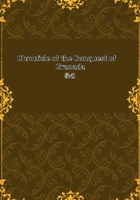
第79章
Such was the delightful place appointed by El Zagal for the residence of his brother, but, notwithstanding its wonderful salubrity, the old monarch had not been removed thither many days before he expired. There was nothing extraordinary in his death: life with him had long been glimmering in the socket, and for some time past he might rather have been numbered with the dead than with the living. The public, however, are fond of seeing things in a sinister and mysterious point of view, and there were many dark surmises as to the cause of this event. El Zagal acted in a manner to heighten these suspicions: he caused the treasures of his deceased brother to be packed on mules and brought to Granada, where he took possession of them, to the exclusion of the children of Abul Hassan. The sultana Zoraya and her two sons were lodged in the Alhambra, in the Tower of Comares. This was a residence in a palace, but it had proved a royal prison to the sultana Ayxa la Horra and her youthful son Boabdil. There the unhappy Zoraya had time to meditate upon the disappointment of all those ambitious schemes for herself and children for which she had stained her conscience with so many crimes.
The corpse of old Muley was also brought to Granada--not in state becoming the remains of a once-powerful sovereign, but transported on a mule, like the corpse of the poorest peasant. It received no honor or ceremonial from El Zagal, and appears to have been interred obscurely to prevent any popular sensation; and it is recorded by an ancient and faithful chronicler of the time that the body of the old monarch was deposited by two Christian captives in his osario or charnel-house.* Such was the end of the turbulent Muley Abul Hassan, who, after passing his life in constant contests for empire, could scarce gain quiet admission into the corner of a sepulchre.
*Cura de los Palacios, c. 77.
No sooner were the populace well assured that old Muley Abul Hassan was dead and beyond recovery than they all began to extol his memory and deplore his loss. They admitted that he had been fierce and cruel, but then he had been brave; he had, to be sure, pulled this war upon their heads, but he had likewise been crushed by it. In a word, he was dead, and his death atoned or every fault; for a king recently dead is generally either a hero or a saint.
In proportion as they ceased to hate old Muley they began to hate his brother. The circumstances of the old king's death, the eagerness to appropriate his treasures, the scandalous neglect of his corpse, and the imprisonment of his sultana and children, --all filled the public mind with gloomy suspicions, and the epithet of Fratricide was sometimes substituted for that of El Zagal in the low murmurings of the people.
As the public must always have some object to like as well as to hate, there began once more to be an inquiry after their fugitive king, Boabdil el Chico. That unfortunate monarch was still at Cordova, existing on the cool courtesy and meagre friendship of Ferdinand, which had waned exceedingly ever since Boabdil had ceased to have any influence in his late dominions. The reviving interest expressed in his fate by the Moorish public, and certain secret overtures made to him, once more aroused the sympathy of Ferdinand: he advised Boabdil again to set up his standard within the frontiers of Granada, and furnished him with money and means for the purpose. Boabdil advanced but a little way into his late territories; he took up his post at Velez el Blanco, a strong town on the confines of Murcia: there he established the shadow of a court, and stood, as it were, with one foot over the border, and ready to draw that back upon the least alarm. His presence in the kingdom, however, and his assumption of royal state gave life to his faction in Granada. The inhabitants of the Albaycin, the poorest but most warlike part of the populace, were generally in his favor: the more rich, courtly, and aristocratical inhabitants of the quarter of the Alhambra rallied round what appeared to be the most stable authority and supported the throne of El Zagal. So it is in the admirable order of sublunary affairs: everything seeks its kind; the rich befriend the rich, the powerful stand by the powerful, the poor enjoy the patronage of the poor, and thus a universal harmony prevails.